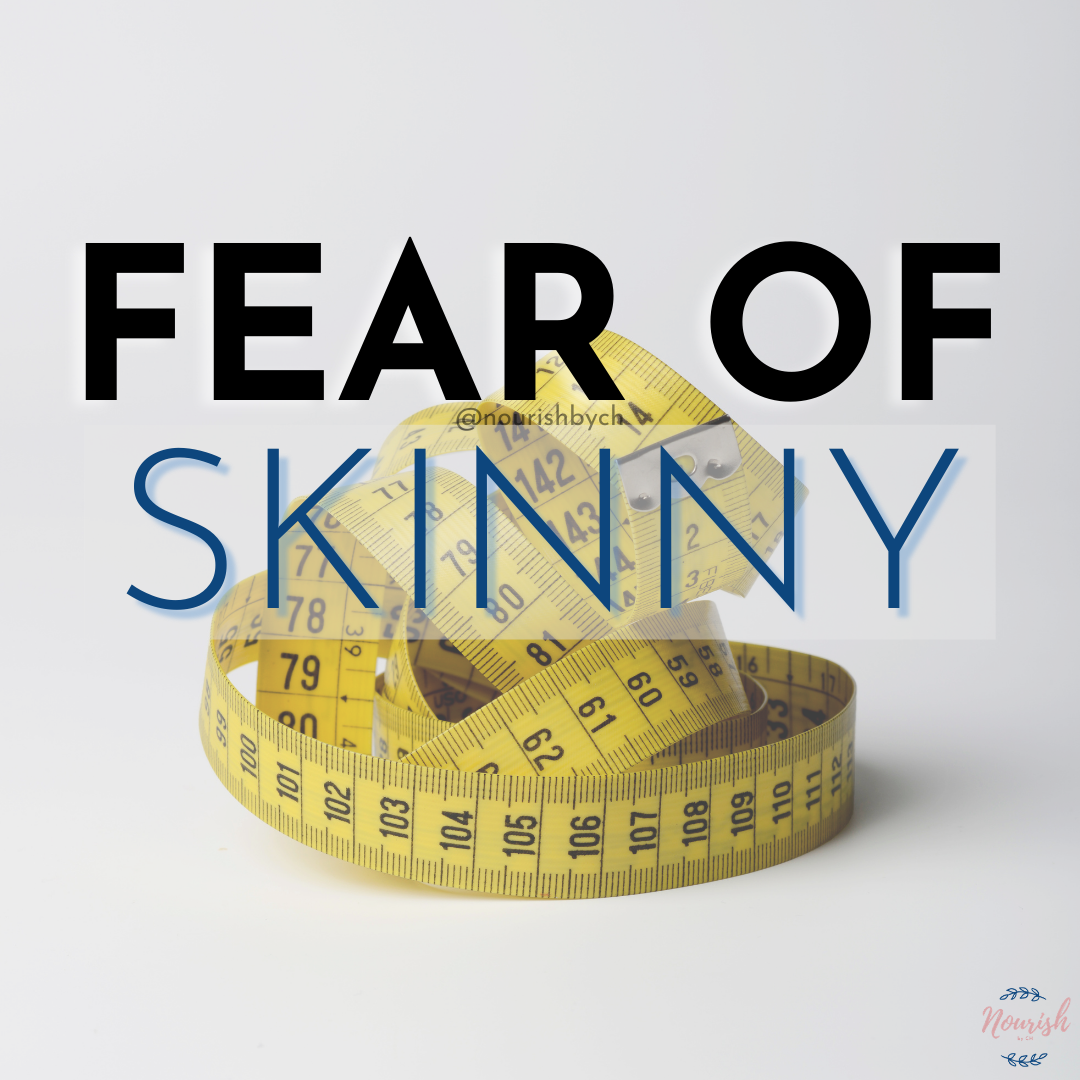
I found this post really hard to write because my perfectionist’s brain doesn’t want to oversimplify, overcomplicate, or offend anyone. It’s literally been sitting in drafts since November. I asked you guys if you wanted to hear an account of my relationship with food and weight on my IG and you said yes…so here goes! Feedback is welcomed, just be kind with it.
Culture
In my culture women are viewed as more beautiful when they have a bit more “meat” on their bones. So, when the phrase “thin privilege” was mentioned to me some time ago, I was baffled as to what it referred to. I looked it up and it got me thinking… about my own experiences with weight, culture and societal norms from my perspective, as a thin person. I’ve come to understand that you can be healthy at any weight or size. And I hope to discuss this point of view as respectfully as possible.
From a very young age, I have been called skinny, bone bird, boney, and other things related to my size. I remember wondering if I’d ever get any bigger, especially as I grew taller. Instead, I was constantly reminded of my size, but at least I was healthy. Yet as I reached my teens, there was this ideal which I hoped I would fit into eventually.
Image used with content creator’s permission.
I wanted to look more like my peers who were filling out in the hips, thighs and chest, because culturally this was the norm. Entering college around 16 years, I was finding it really difficult to find clothes that fit my body, despite looking like “a model”. And why was that? Because in our culture, women are generally bigger with ample hips, thighs and it felt like I missed out when these were given away. And I almost hated myself for it. When was I going to be that perfect shape?
In westernised societies where diet culture persists, it’s often the reverse of this. Bearing in mind that “healthy” ideals seem to change by the decade, similarly to fashions. Thinness was the idealised beauty in the 90s and 2000s, clothes were made for small frames, without room for curves, even in the bigger sizes. It was the messaging presented in the magazines I read from time to time, it was seen in the stars of most TV dramas. But to me, it wasn’t the fit I wanted.

I wanted to fit into my culture.
Has you had a similar experience? Please feel free to share even if it was different.
Relationship with food
Despite I thought I had a great relationship with food (and there were rarely foods that I didn’t eat), my concerns about body weight was constantly playing on my mind. From the comments people made about my body, assuming I was a “healthy” eater who was also active, to being judged when they saw me eat heartily. There’s often this misconception that being thinner means you’re healthy and eat the “best diet”. As I came to find out much later when I became a registered associate nutritionist, you can have a healthy BMI, yet have high cholesterol or develop type 2 diabetes.
In my teens, I enjoyed eating the high fat and high sugar foods, understanding fully they were typically painted as the culprits of weight gain. Did it help me to gain weight? Not even.
Did it make me unhealthy? No.
But it was also a habit I found hard to keep up, because I craved variety in my meals and snacks. I love buffets!

Too often healthism advocates deliver this narrative that if you aren’t eating minimally processed, organic, healthy foods, that you’re bound to die of some chronic illness. But nutrition is not this black and white. Not going to lie, but when I decided Nutrition was going to be for me, I thought I would be able to find really straightforward fixes to obesity. Boy, was I wrong, but I continue to learn.
Nutrition is the accumulative act of nourishing your body, enjoying food and understanding your hunger and fullness.
While additionally, there are so many other (more influential) risk factors to chronic diseases, such as your environment, access to healthcare, social demographic, finances, work, genetics, physical activity, and stress management. In fact, some views on health and nutrition can be very insensitive and create a sense of morality associated with food, that can ruin our relationship with it. Because we just want to follow the rules and be good people.
While healthism advocates may mean well, it’s always best to get your dietary advice from a registered (associate) nutritionist or dietitian. They’ll take all of these factors into account when they give individualised advice.
Secondly, commenting on people’s food choices and bodies is tricky, unnecessary and often a slippery slope that I’ve definitely fallen down more than a few times. As I learn more about weight bias, I think I’ve also become more tactful about complimenting people and myself. But because of culture, it can be very normal to assume a lot about a person based on their weight. We speculate about their relationship status, well-being, happiness, sense of self-worth, health and sometimes even their character all based on the outer appearance.
Have you ever experienced assumptions based on your weight? Is this a part of your culture?


This is very well written and insightful Christina. I found myself in similar water with the whole skinny foolishness and I am glad you were able to clarify some important information for me.
Thanks Maya! I appreciate your feedback and happy that the post has helped you too!